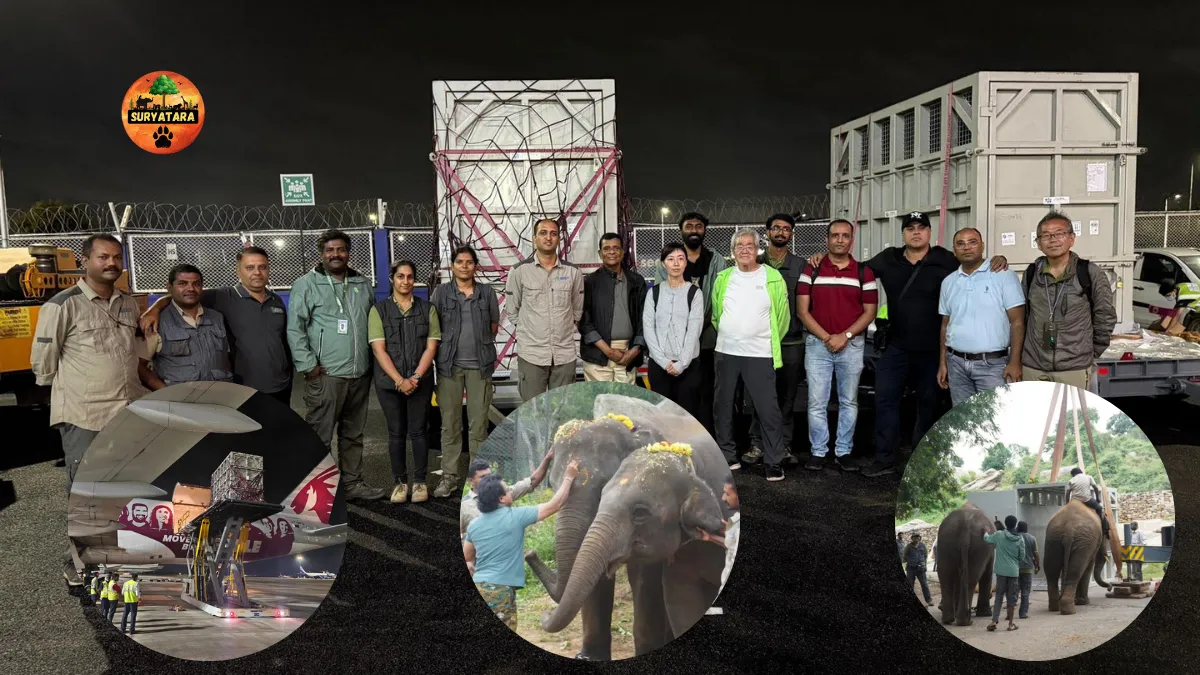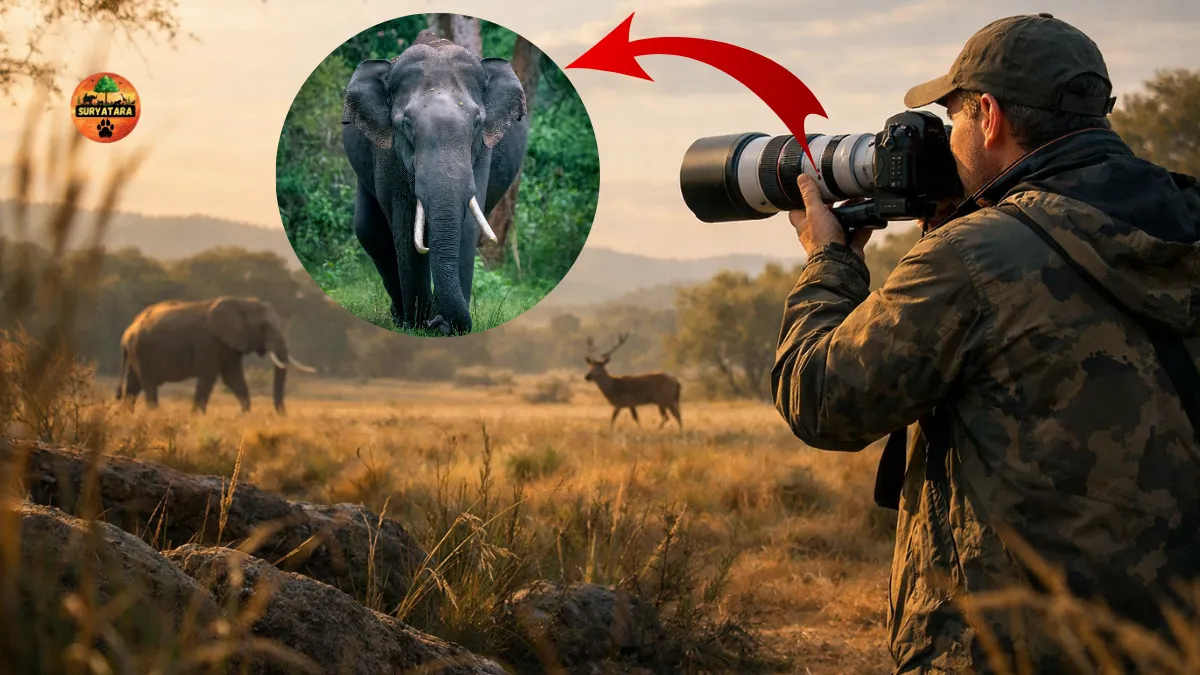Bannerghatta Biological Park has achieved a historic milestone by successfully sending four Asian elephants to Japan’s Himeji Central Safari Park. This significant event marks the park’s first-ever international wildlife exchange, boosting its global reputation in wildlife care and conservation.
Months of Training, Then a Flight to Japan
After months of careful planning, training, and veterinary preparation, four elephants—Suresh (8), Gauri (9), Shruti (7), and Tulsi (5)—set out on a long journey from Bannerghatta Biological Park in Bengaluru to Japan. This move reflects the park’s growing capability and commitment to international standards in wildlife management.
A 20-Hour Journey with Full Precautions
The elephants were flown via Qatar Airways Cargo’s Boeing 777-200F aircraft from Kempegowda International Airport in Bengaluru to Kansai International Airport in Osaka, Japan, on July 24 and 25, 2025. Including ground transportation, the entire journey took about 20 hours. Months of health monitoring, medical checks, and behavioral training were carried out before this long and sensitive trip to ensure the elephants’ physical and emotional well-being.
Team of Experts Accompanied the Elephants
To ensure the elephants‘ safety and comfort, a team of eight trained professionals from Bannerghatta Biological Park traveled along with them. The team consisted of two veterinarians, four experienced mahouts (elephant keepers), one biologist, and a senior supervisor. They will remain at Himeji Central Safari Park for two weeks to help the elephants settle into their new home.
Part of an International Animal Exchange Program
This elephant transfer is part of an official wildlife exchange agreement under the Central Zoo Authority of India. In return for the four elephants, Bannerghatta Biological Park will receive a set of exotic animals including four cheetahs, four jaguars, four pumas, three chimpanzees, and eight black-capped capuchin monkeys from Japan. This mutually beneficial exchange is designed to enhance genetic diversity, enrich zoo exhibits, and promote conservation education.
Japanese Team Trained in India Beforehand
Prior to the elephants’ relocation, a team of zookeepers and elephant handlers from Himeji Central Safari Park had undergone a 20-day training program at Bannerghatta Biological Park in May 2025. The training focused on understanding the elephants’ feeding habits, behavioral needs, and daily care routines to ensure a smooth transition to their new environment in Japan.
Not the First Time India Sends Elephants to Japan
This is not the first time India has sent elephants to Japan. In May 2021, three elephants were transferred from Mysuru Zoo to Toyohashi Zoo and Botanical Park in Japan. However, this is the first time that Bannerghatta Biological Park has participated in such a significant international collaboration.
Also read: Bannerghatta National Park Ticket Price: Complete Guide for Visitors
Ensuring Elephant Welfare Every Step of the Way
Throughout this transfer, Bannerghatta Biological Park prioritized the well-being of its elephants. From providing a stress-free environment during the journey to closely monitoring their diet and health, every precaution was taken to avoid any kind of trauma or discomfort. The park followed global standards in animal transport and welfare, showcasing India’s evolving expertise in wildlife conservation and management.
Also read: Wildlife Rescue Centres in India: Guardians of Nature’s Voiceless
Conclusion
The successful transfer of four Asian elephants from Bannerghatta Biological Park to Japan is not just a proud moment for the park but also a remarkable example of India’s growing commitment to international wildlife cooperation. This exchange highlights the importance of ethical animal relocation, cross-border collaboration in conservation, and the role of modern zoos in promoting biodiversity.
Such initiatives are crucial not only for the enrichment of zoo populations but also for strengthening diplomatic and ecological relationships between countries. With this historic move, Bannerghatta Biological Park has once again proven its place on the global map of wildlife preservation and animal care.













